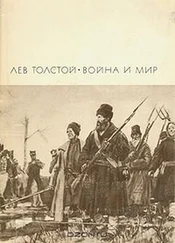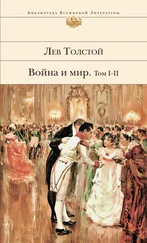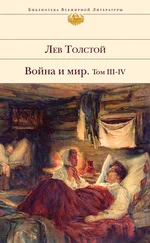| Amid the general rumble, the groans and voices of the wounded were more distinctly heard than any other sound in the darkness of the night. |
В общем гуле из-за всех других звуков яснее всех были стоны и голоса раненых во мраке ночи. |
| The gloom that enveloped the army was filled with their groans, which seemed to melt into one with the darkness of the night. |
Их стоны, казалось, наполняли собой весь этот мрак, окружавший войска. |
| After a while the moving mass became agitated, someone rode past on a white horse followed by his suite, and said something in passing: |
Их стоны и мрак этой ночи - это было одно и то же. Через несколько времени в движущейся толпе произошло волнение. Кто-то проехал со свитой на белой лошади и что-то сказал, проезжая. |
| "What did he say? |
Что сказал? |
| Where to, now? |
Куда теперь? |
| Halt, is it? |
Стоять, что ль? |
| Did he thank us?" came eager questions from all sides. The whole moving mass began pressing closer together and a report spread that they were ordered to halt: evidently those in front had halted. |
Благодарил, что ли? - послышались жадные расспросы со всех сторон, и вся движущаяся масса стала напирать сама на себя (видно, передние остановились), и пронесся слух, что велено остановиться. |
| All remained where they were in the middle of the muddy road. |
Все остановились, как шли, на середине грязной дороги. |
| Fires were lighted and the talk became more audible. |
Засветились огни, и слышнее стал говор. |
| Captain Tushin, having given orders to his company, sent a soldier to find a dressing station or a doctor for the cadet, and sat down by a bonfire the soldiers had kindled on the road. |
Капитан Тушин, распорядившись по роте, послал одного из солдат отыскивать перевязочный пункт или лекаря для юнкера и сел у огня, разложенного на дороге солдатами. |
| Rostov, too, dragged himself to the fire. |
Ростов перетащился тоже к огню. |
| From pain, cold, and damp, a feverish shivering shook his whole body. |
Лихорадочная дрожь от боли, холода и сырости трясла всё его тело. |
| Drowsiness was irresistibly mastering him, but he kept awake by an excruciating pain in his arm, for which he could find no satisfactory position. |
Сон непреодолимо клонил его, но он не мог заснуть от мучительной боли в нывшей и не находившей положения руке. |
| He kept closing his eyes and then again looking at the fire, which seemed to him dazzlingly red, and at the feeble, round-shouldered figure of Tushin who was sitting cross-legged like a Turk beside him. |
Он то закрывал глаза, то взглядывал на огонь, казавшийся ему горячо-красным, то на сутуловатую слабую фигуру Тушина, по-турецки сидевшего подле него. |
| Tushin's large, kind, intelligent eyes were fixed with sympathy and commiseration on Rostov, who saw that Tushin with his whole heart wished to help him but could not. |
Большие добрые и умные глаза Тушина с сочувствием и состраданием устремлялись на него. Он видел, что Тушин всею душой хотел и ничем не мог помочь ему. |
| From all sides were heard the footsteps and talk of the infantry, who were walking, driving past, and settling down all around. |
Со всех сторон слышны были шаги и говор проходивших, проезжавших и кругом размещавшейся пехоты. |
| The sound of voices, the tramping feet, the horses' hoofs moving in mud, the crackling of wood fires near and afar, merged into one tremulous rumble. |
Звуки голосов, шагов и переставляемых в грязи лошадиных копыт, ближний и дальний треск дров сливались в один колеблющийся гул. |
| It was no longer, as before, a dark, unseen river flowing through the gloom, but a dark sea swelling and gradually subsiding after a storm. |
Теперь уже не текла, как прежде, во мраке невидимая река, а будто после бури укладывалось и трепетало мрачное море. |
| Rostov looked at and listened listlessly to what passed before and around him. |
Ростов бессмысленно смотрел и слушал, что происходило перед ним и вокруг него. |
| An infantryman came to the fire, squatted on his heels, held his hands to the blaze, and turned away his face. |
Пехотный солдат подошел к костру, присел на корточки, всунул руки в огонь и отвернул лицо. |
| "You don't mind your honor?" he asked Tushin. "I've lost my company, your honor. I don't know where... such bad luck!" |
- Ничего, ваше благородие? - сказал он, вопросительно обращаясь к Тушину. - Вот отбился от роты, ваше благородие; сам не знаю, где. Беда! |
| With the soldier, an infantry officer with a bandaged cheek came up to the bonfire, and addressing Tushin asked him to have the guns moved a trifle to let a wagon go past. |
Вместе с солдатом подошел к костру пехотный офицер с подвязанной щекой и, обращаясь к Тушину, просил приказать подвинуть крошечку орудия, чтобы провезти повозку. |
| After he had gone, two soldiers rushed to the campfire. |
За ротным командиром набежали на костер два солдата. |
| They were quarreling and fighting desperately, each trying to snatch from the other a boot they were both holding on to. |
Они отчаянно ругались и дрались, выдергивая друг у друга какой-то сапог. |
| "You picked it up?... |
- Как же, ты поднял! |
| I dare say! You're very smart!" one of them shouted hoarsely. |
Ишь, ловок, - кричал один хриплым голосом. |
| Then a thin, pale soldier, his neck bandaged with a bloodstained leg band, came up and in angry tones asked the artillerymen for water. |
Потом подошел худой, бледный солдат с шеей, обвязанной окровавленною подверткой, и сердитым голосом требовал воды у артиллеристов. |
| "Must one die like a dog?" said he. |
- Что ж, умирать, что ли, как собаке? - говорил он. |
| Tushin told them to give the man some water. |
Тушин велел дать ему воды. |
| Then a cheerful soldier ran up, begging a little fire for the infantry. |
Потом подбежал веселый солдат, прося огоньку в пехоту. |
| "A nice little hot torch for the infantry! |
- Огоньку горяченького в пехоту! |
| Good luck to you, fellow countrymen. Thanks for the fire-we'll return it with interest," said he, carrying away into the darkness a glowing stick. |
Счастливо оставаться, землячки, благодарим за огонек, мы назад с процентой отдадим, - говорил он, унося куда-то в темноту краснеющуюся головешку. |
| Next came four soldiers, carrying something heavy on a cloak, and passed by the fire. |
За этим солдатом четыре солдата, неся что-то тяжелое на шинели, прошли мимо костра. |
| One of them stumbled. |
Один из них споткнулся. |
| "Who the devil has put the logs on the road?" snarled he. |
- Ишь, черти, на дороге дрова положили, -проворчал он. |
| "He's dead-why carry him?" said another. |
- Кончился, что ж его носить? - сказал один из них. |
| "Shut up!" |
- Ну, вас! |



